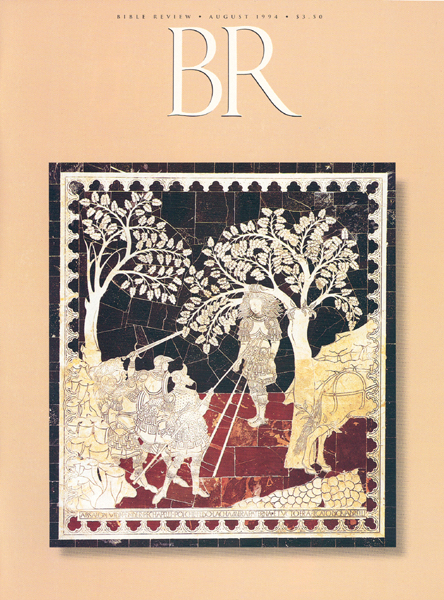Bible Review, August 1994

Features
The Late Bronze Age did not die a slow, lingering death. It came to a swift end in the 12th century B.C.E., marked by sudden cultural collapse and widespread population shifts. Out of the ashes of the Bronze Age destructions emerged classical Greek culture and biblical Israel. When one considers the contributions these two cultures […]
Sex has always been of greater interest to anthropologists than to students of the Bible. For that very reason, however, anthropology may offer an added dimension for understanding biblical texts.
The historical-critical method of Bible interpretation is “indispensable”, declares a remarkable new report of the Pontifical Biblical Commission of the Roman Catholic Church.1 “Proper understanding [of the Bible] not only admits the use of this method but actually requires it.” Holy Scripture is the “word of God in human language”; in short, the Bible “has […]
Call it the case of a fictional falling man who threatens to cause the downfall of a real man, or call it a case of political correctness run amok. Whatever you call it, Graydon F. Snyder, a professor of New Testament at Chicago Theological Seminary, suddenly finds himself the most famous Bible scholar in the countryand dearly wishes he werent.
In the December 1993 BR we published a lengthy review of John Van Seters’s Prologue to History: The Yahwist as Historian in Genesis (Bible Books, BR 09:06). Our reviewer, Richard Elliot Friedman, of the University of California at San Diego, leveled numerous criticisms at the book, writing at one point, “There is therefore reason to doubt the soundness of method and reasoning in Van Seters’s work. In this scholarship the [Bible’s] text rarely speaks for itself …. Rather it is the scholar’s spin on the text that houses the point.” Van Seters’s rebuttal to Friedman’s critique follows this introduction; Friedman’s reply follows that.
